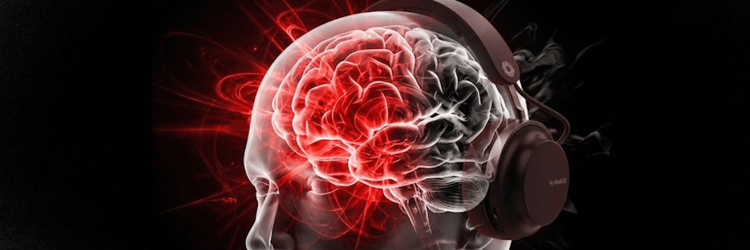So, it's Monday morning. You’re all set for the day, and clock in at 10 AM, power through back-to-back calls and meetings, tick off a dozen to-dos, and by 7 PM, you're finally about to shut your laptop, and ready to leave.
Suddenly you're pinned in place by the glare - that silent, soul-piercing, laser-focused look from your boss that practically screams, “Leaving already? At 7?”
Welcome to the cult of hustle culture. Here, leaving ‘on time’ is a crime, and overworking will get you in the hall-of-fame of we don’t know where. But the most important rule, the one thing you're never, ever allowed to do is: clock out early, ever.
But let’s take a breath. What’s this grind really getting us? Is it the sure shot route to success, or just a fast-pass to burnout? And seriously, do we need to work a thousand hours a week to be productive?
Or maybe, just maybe, it’s about working smarter. With tools (like, we don’t know, smart headphones, wink) that help you get 10 hours of work done in five. Now that’s a hustle worth backing.
What is Hustle Culture?
You’ve seen the hashtags: #Hustle, #RiseAndGrind, #TeamNoSleep.
Everywhere you scroll, someone’s outworking someone else. And you can hear it right?
One week someone says, “work 70 hours a week”, by next week, another has upped it to ‘100 hours a week’.
Influencers, founders, self-proclaimed success gurus - they’re all shouting the same message: hustle harder. Gary Vee’s yelling about crushing it. Elon Musk is pulling 120-hour weeks. Grant Cardone says you’re not doing enough unless you’re doing everything.
And the slogans? Oh, they’re super catchy: “Sleep when you’re dead.” “Grind now, shine later.” “If you’re not working, you’re losing.”
The worst part is - it’s easy to get swept up in it. To believe that every hour not spent working is a missed opportunity. That rest is weakness. That balance is for people who aren’t serious. That you must squeeze the most out of every minute, second or moment or you're just not doing enough.
But here’s the problem - eventually, there’s nothing left to squeeze. You hit a wall. Your brain legitimately slows down. Your motivation to do anything pretty much flatlines. Even the work you used to enjoy feels heavy. The grind stops feeling impressive and starts feeling… exhausting.
Because nonstop hustle? It sounds cool online. But in real life, it burns you out.
The Impact of Hustle Culture on Productivity
So, yes, spoiler alert (not that this is privileged information) - working more hours doesn’t mean working better.
Relentless optimisation has a higher price to pay than you think it does. It doesn't just make you less productive, it kills your productivity altogether.
Because yes, initially, overworking and busyness feel so productive - you feel like you're on the right track to conquer the world. And then, without realising, you start spending less and less time doing anything apart from working. Soon enough, what defines you is just your work.
You cut down on the time you spent on reading new books, meeting new people, trying new hobbies or just doing nothing, and now your well of information is empty. You’re generating no new ideas, don't have experiences to draw from, don't have the cognitive agility to do anything but a job.
What sounds like ambition, initially, is what kills productivity. It's what makes you a robot, not an achiever - someone actually capable of success.
In fact, research shows that hustling has ‘diminishing returns’. A Stanford study found that when people work more than 50 hours a week, their productivity takes a hit. It drops even more sharply once they go over 55 hours. So go ahead, hustle all you want, but after a certain point, you're just playing yourself.
And, continuously pushing yourself to the brink doesn’t just hurt productivity - it reduces your creativity, focus, and decision-making abilities. All the things that are way more important than that Excel sheet you've been losing your mind over.
Your brain needs downtime to rest, rejuvenate, and freshen up. Without this rest, your performance plateaus, or worse, crashes entirely.
Suggested Reads: The Kind of Music the Top 1% Listen to, to Increase their Focus and Attention
Burnout Symptoms and Warning Signs
So, how do you know if hustle culture is starting to take its toll? Watch out for these signs:
Constant fatigue (that sleep just doesn't fix)
Declining enthusiasm or motivation for tasks you once enjoyed
Feelings of detachment or cynicism about your job
A noticeable drop in productivity and efficiency
Physical signs like frequent headaches, insomnia, or stomach issues
Burnout isn't just feeling tired; it’s recognised by the World Health Organization as a legitimate condition stemming from chronic workplace stress.
And if you’re wondering does ‘chronic workplace stress’ even really matter?
Cue your gasps now - because the answer is: yes.
Burnout is now classified under WHO’s International Classification of Diseases (ICD-11) as an occupational phenomenon, and referred to as a ‘syndrome’.
If that sounds way too serious? It’s because it just might be.
Suggested Reads: Bend Time to Your Will and Get More Done with These Unconventional Ways
Hustle Culture vs. Work-Life Balance
Between all the hustlers and overworked zombies you encounter at work, there's this strange species of humans - you’ve heard of them - who log off at 6 PM, go for walks, cook dinner, maybe even read a book that isn’t about productivity hacks. Shocking, we know.
They call it work-life balance.
But here’s the twist: they’re not lazy. They’re just... human. Turns out, your brain isn’t designed to be a 24/7 machine. It needs rest. Real rest. Not the “I’ll just scroll while lying in bed” kind. Actual disconnection.
Balance isn’t about doing less. It’s about doing it better. It’s about finishing your work without selling your soul…or your sleep. And maybe even having enough energy left to catch up with your friends, or to do your laundry.
Sure, hustle has its moments. Deadlines, launches, investment pitches - they’re part of the deal. But if every day feels like an emergency? You’re not hustling. You’re just surviving.
In fact, research strongly supports the importance of work-life balance.
Harvard Business Review points out that when companies really support work-life balance, it makes a big difference for employees. It boosts their well-being, helps keep them around longer, and even makes them more productive.
Balance is not laziness, or not “doing enough” - it’s strategic. It’s extracting good amount of work from the day, and utilising the rest of your energy for yourself.
The Role of Self-Care in Breaking the Cycle
Self-care is not just misunderstood, but also exaggerated to an unhealthy amount. Buying iced-mocha-caramel-frappe on an off day, or splurging on a new gaming set up every time you feel down is not self-care.
At its core, it's simply taking consistent, and intentional actions to protect your health - physically, mentally, and emotionally.
Regular sleep, daily movement, mindfulness, social connection and sometimes disconnection - are tools to combat stress and actually increase your productivity.
So here’s some practical steps for sustainable hustle:
Prioritise tasks: Not all tasks deserve your highest energy. Learn to delegate, automate, or eliminate non-essential tasks.
Set clear boundaries: Establish working hours and stick to them. Make your downtime sacred. That means no 3 AM meetings, and no 8 AM “urgent calls”.
Take regular breaks: Short breaks throughout the day help maintain productivity and reduce stress. So go ahead, take a walk in the middle of the work day.
Build healthy habits: Sleep well, eat well, and stay physically active.
Practice mindfulness: Simple things like meditation and deep breathing can really help lower your stress.
Look, ambition’s not the bad guy here - it’s important. But real success? That comes from hustling smart, not running yourself into the ground. Know when to go full throttle, and when it’s time to slow down. If you want to stay productive, you’ve got to protect your energy - both physical and mental.
And the next time your boss gives you that dramatic “you’re leaving already?” look? Just smile. You know you’re in it for the long haul.
Clock out at 7. Guilt-free. You’ve done enough.
Suggested Reads: Cognitive health and its correlation to longevity
FAQs
1. Is hustle culture entirely harmful?
Not always. A little hustle can push you through deadlines, get you through pitches, and be your ultimate productivity partner. But when it becomes your lifestyle? That’s when the cracks (and burnout) start showing.
2. How do I prevent burnout?
Start by drawing some healthy lines, or best known as boundaries around work hours, screen time, even your own expectations. Add in regular breaks, good sleep, movement, and the occasional day where you do absolutely nothing. It matters, and it adds up.
3. Am I trapped in hustle culture?
If taking a break makes you feel guilty, or if your entire sense of worth is tied to your work, and nothing apart from the work/job you do brings you contentment—then yep, you’re probably stuck in it. The good news? You can absolutely get out.
4. Can you succeed without hustle culture?
Yes. In fact, real, lasting success often comes from consistency, not chaos. When your work is backed by rest, inspiration, and clarity—that’s when the good stuff actually happens.
Suggested Reads: They Designed Your Screens to Ensure You Fall Behind—It’s Working
References
( Work-Life Balance is a Cycle, Not an Achievement – HBR (2021)
(The Surprising Benefits of Work-Life Support – HBR (2022)
(Burnout: An Occupational Phenomenon – WHO (2019)
(APA Tips to Manage Stress – American Psychological Association)
More in Productivity













